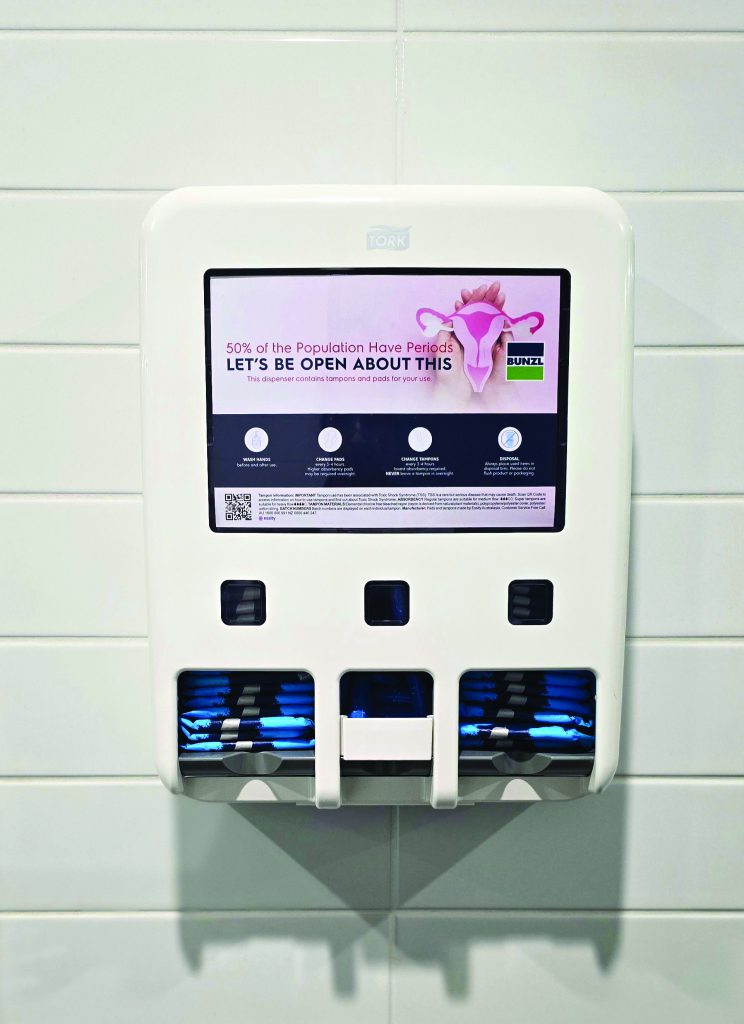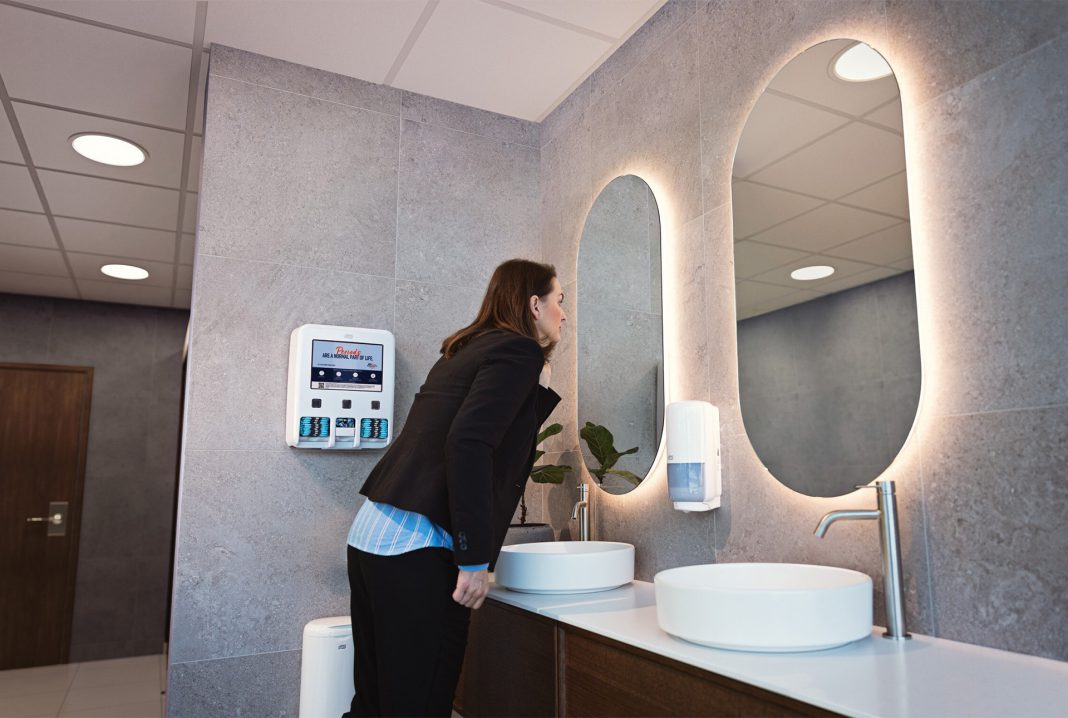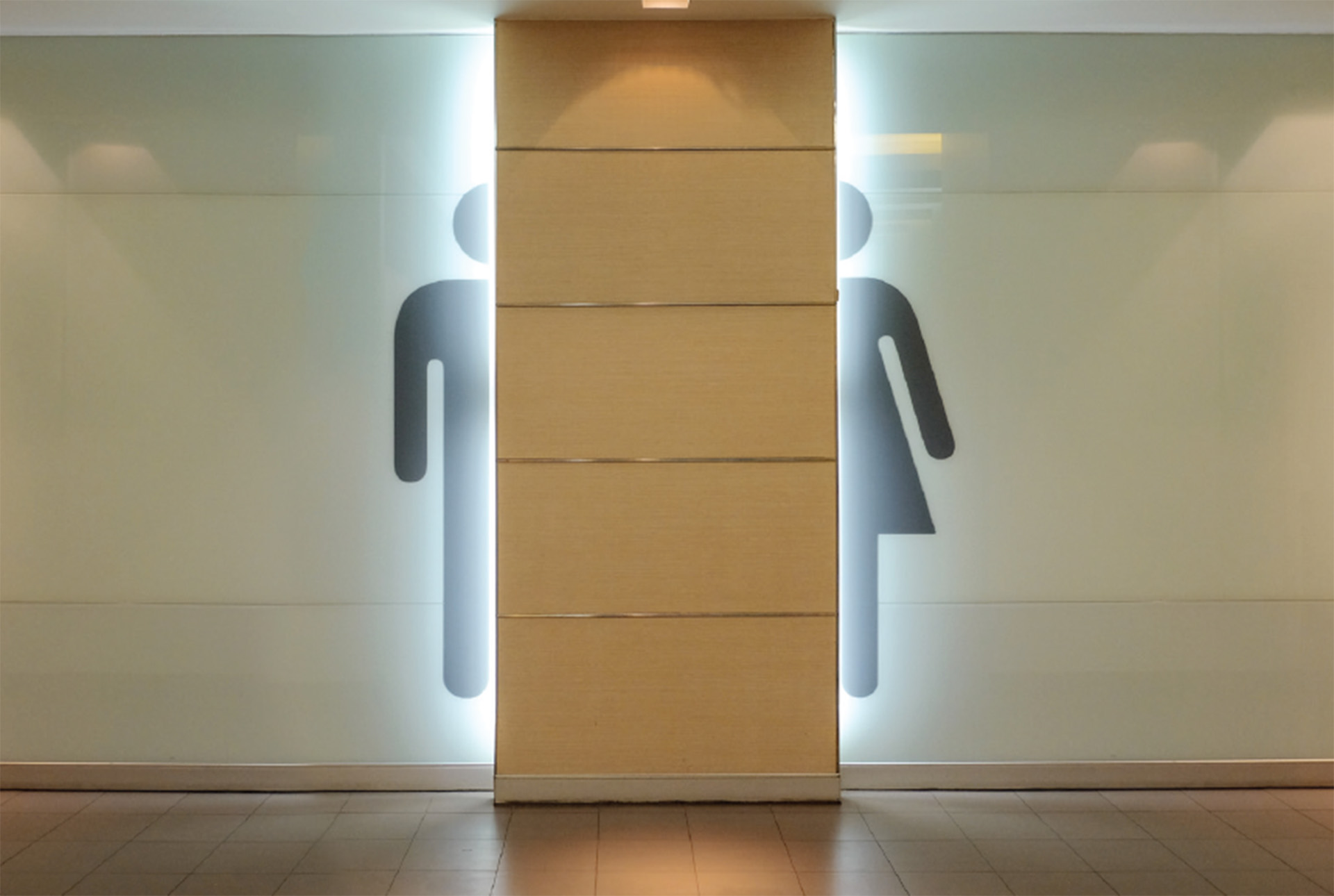
Fostering inclusivity in workplaces goes beyond policy – it’s also about addressing practical needs. One of the most impactful ways to support employees is to ensure easy access to period care products. Not only does it help reduce stigma and enhance wellbeing and understanding, but it can also help boost productivity and reduce absenteeism.
One in five females have missed a day of work or school due to menstruation, while 68% of women in New Zealand and 56% in Australia admit to hiding their period at home, work or school. Many women can sympathise with the 66% who say they’ve carried a handbag with period care products to the bathroom to hide their period.
Unexpected menstruation at work can cause considerable embarrassment, not to mention inconvenience. Even when a period is planned for, the anxiety associated with discretely accessing period products can be an ongoing source of stress that impacts an employee’s ability to concentrate and perform their job comfortably.
“The stigma is why we’ve decided to roll out period aid dispensers across our New Zealand and Australia sites,” says Bunzl’s HR Director, Jennifer Tiffin. “The dispensers allow free access to tampons and pads. We know that providing easy access to period care products in the workplace can have a significant impact on the wellbeing of employees by normalising menstruation, reducing the embarrassment and anxiety associated with periods, and creating an inclusive and supportive workplace.” Moreover, easy and immediate access to period care products can help prevent the disruptions and absenteeism that result from employees trying to find the time and opportunity to buy
period products or even running the risk and associated embarrassment of going without the products they need.
Normalising easy access to period care products can make a real difference to someone’s experience at work.
“We don’t want any of our employees to find themselves in that position,” says Bunzl’s State Manager for Queensland, Lachlan Mann. “Normalising easy access to products can make a real difference to someone’s experience at work. Everyone has enough on their plates already without having to feel anxious or embarrassed about their period.”
Offering period care products signals that an organisation takes its employees’ wellbeing seriously. Going beyond words and implementing practical solutions that demonstrate a company’s values can go a long way to attracting and retaining talent in a competitive market.
“For Bunzl, access to period care products is an important part of our commitment to gender equity,” Tiffin says. “Fifty-four per cent of people think it’s taboo to talk about periods. We want to play an active role in lowering that figure. By addressing a fundamental health need that primarily affects women and menstruating individuals, we can help reduce the stigma and challenges associated with menstruation so that our people can participate fully in their jobs and without having to face unnecessary barriers.”









